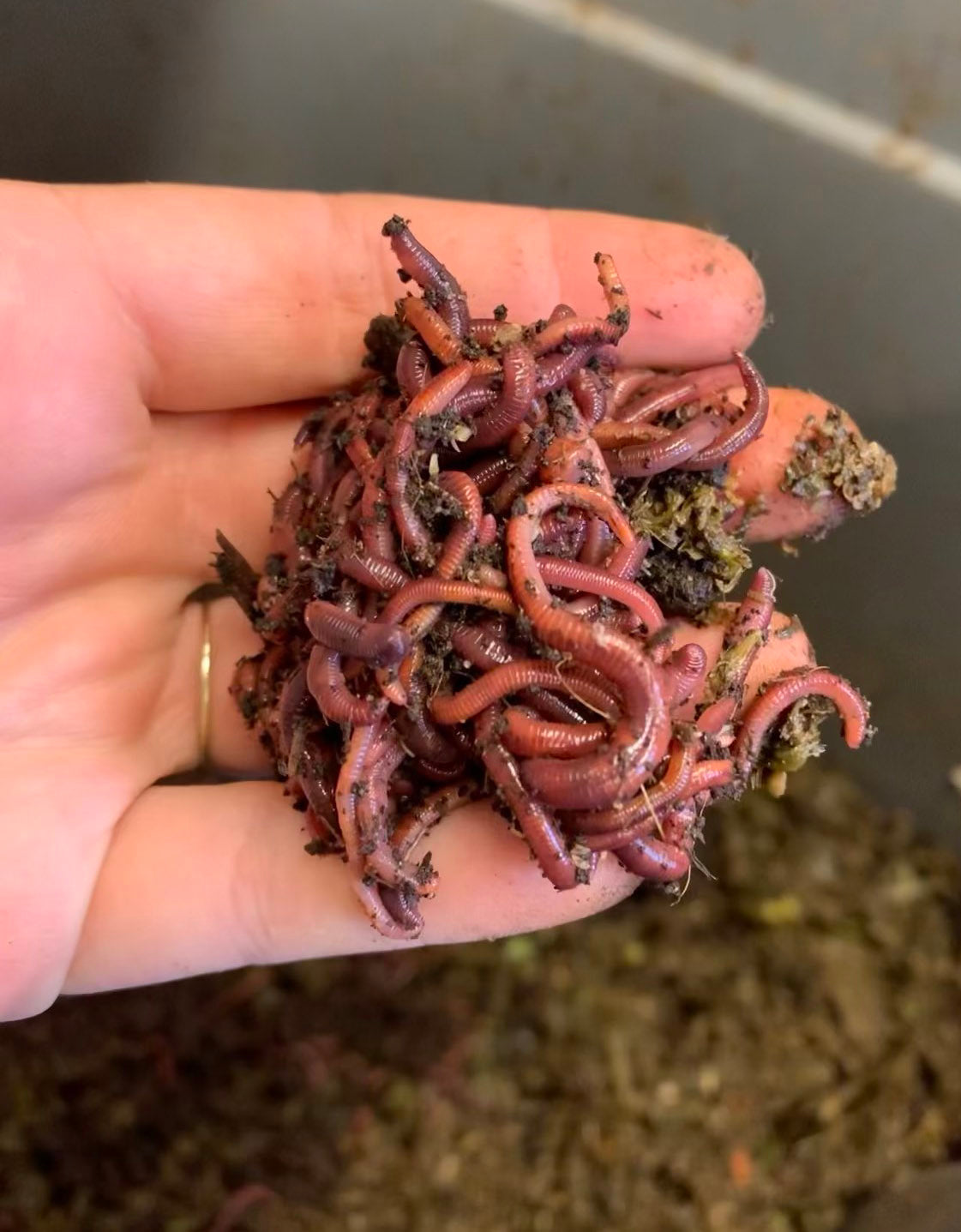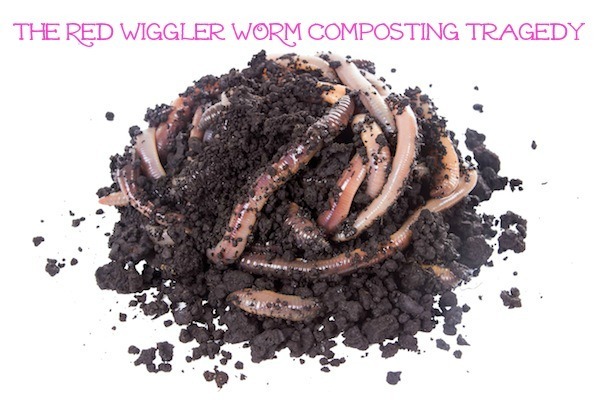Understanding Red Wiggler Composting: Crucial Practices for Healthy And Balanced Composting
Understanding Red Wiggler Composting: Crucial Practices for Healthy And Balanced Composting
Blog Article
The Benefits of Making Use Of Red Wiggler Composting: Discover Exactly How This Eco-Friendly Method Enhances Soil Health And Wellness and Promotes Plant Growth
The practice of red wiggler composting offers an array of benefits that expand beyond straightforward waste administration, offering substantial benefits for dirt wellness and plant vitality. By changing organic products into nutrient-rich worm spreadings, this eco-friendly method not only improves soil structure yet additionally cultivates a thriving environment of beneficial microorganisms. As the equilibrium of nutrients in these castings advertises optimum origin development, the ramifications for lasting horticulture and ecological stewardship become progressively obvious. Understanding the full level of these advantages may bring about a reevaluation of traditional composting methods and their performance.
Benefits of Vermicomposting
Vermicomposting, using red wiggler worms, uses countless advantages that add to sustainable waste monitoring and soil improvement. One of the main benefits is its efficiency in organic waste disintegration (Red Wiggler Composting). Red wigglers can eat their body weight in raw material daily, considerably decreasing kitchen area scraps and backyard waste, which decreases garbage dump contributions
Additionally, vermicomposting operates at cooler temperature levels compared to standard composting approaches, permitting year-round processing and reducing smell issues. The presence of red wigglers increases the malfunction of materials, producing nutrient-rich spreadings that improve microbial activity in the compost.
In addition, this method fosters a closed-loop system where waste is transformed right into a useful resource, promoting eco-friendly balance. The ease of taking care of a vermicomposting system makes it accessible for both rural and urban setups, motivating neighborhood involvement in sustainable techniques.
Enhancing Soil Nutrients
The nutrient-rich castings created by red wigglers act as an effective modification for improving soil quality. These worm spreadings are rich in essential macro and trace elements such as nitrogen, phosphorus, calcium, magnesium, and potassium, which are important for plant health and development. Unlike synthetic plant foods, which can lead to vitamins and mineral leaching and soil destruction, worm spreadings give a slow-release source of nutrients that boost dirt structure and fertility with time.
Furthermore, the raw material located in worm spreadings improves dirt aeration and water retention. This is particularly useful for plants, as it assists in much better origin development and promotes general plant vigor. The balanced nutrient profile of worm spreadings additionally lessens the threat of nutrient melt that is frequently related to chemical fertilizers.
Including red wiggler compost into garden soil or potting blends not just enhances the vitamins and mineral content but also sustains sustainable gardening methods - Red Wiggler Composting. By using this eco-friendly technique, garden enthusiasts can foster much healthier plants, enhance plant returns, and add favorably to soil community health and wellness. Generally, boosting dirt nutrients via red wiggler composting is a pragmatic strategy to lasting farming and horticulture
Promoting Beneficial Microorganisms
Exactly how can red wiggler composting enhance the microbial variety in dirt? Red wigglers, understood for their reliable decay of organic matter, go now contribute dramatically to the facility of a rich microbial ecosystem. As these worms eat compost products, they damage them down right into smaller sized bits, making nutrients much more easily accessible for various microorganisms. This process fosters a varied selection of advantageous bacteria, fungi, and protozoa, which are essential for soil health.
The spreadings generated by red wigglers are bursting with bacteria that promote nutrient biking and improve soil framework. These microbial communities play a vital role in damaging down natural matter, releasing essential nutrients that plants can soak up. Additionally, most of these microbes add to soil aggregation, boosting aeration and water retention.
In addition, the existence of diverse microbial populaces assists subdue soil-borne illness by outcompeting hazardous virus. This all-natural biocontrol mechanism is essential for keeping healthy and balanced plant growth. To conclude, red wiggler composting not only enriches the soil with nutrients but likewise fosters a vivid microbial community, which is important for sustainable agricultural techniques and developing durable communities.
Decreasing Cooking Area Waste
Regularly neglected in waste monitoring discussions, red wiggler composting supplies an effective option for reducing kitchen area waste. By using red wigglers, organic kitchen Read More Here area scraps that would typically finish up in garbage dumps can be changed right into nutrient-rich compost. This procedure dramatically decreases the quantity of waste generated, consequently reducing pressure on waste management systems and adding to lasting living techniques.

Furthermore, red wiggler composting can be easily implemented in both country and metropolitan settings, making it accessible to a broad target market. This method urges people to adopt eco-friendly techniques in their lives, fostering a better recognition of waste monitoring and environmental duty. Inevitably, red wiggler composting offers as a efficient and practical approach for minimizing cooking area waste while advertising a more lasting way of living.
Improving Plant Development
Making use of red wiggler compost not just addresses kitchen area waste decrease yet additionally significantly enhances plant development. The nutrient-rich compost generated by these earthworms has crucial macronutrients and micronutrients, consisting of nitrogen, potassium, and phosphorus, which are crucial for plant growth. This natural plant food contributes to boosted dirt framework, helping with far better aeration and water retention, which are essential for healthy and balanced origin systems.
Furthermore, red wiggler compost is including valuable microbes that promote dirt wellness. These microorganisms assist in damaging down organic issue, making nutrients much more easily accessible to plants. The existence of beneficial bacteria and fungis fosters a symbiotic connection with plant origins, strengthening nutrient uptake and boosting resistance to diseases.
Moreover, using red wiggler garden compost can aid regulate dirt pH degrees, creating an ideal setting for varied plant varieties. The slow-release nature of the nutrients makes sure that plants get a stable supply gradually, decreasing the threat of nutrient leaching and minimizing the demand for chemical fertilizers.
Conclusion

The practice of red wiggler see this site composting provides a variety of advantages that expand beyond basic waste administration, using substantial advantages for soil wellness and plant vitality.Vermicomposting, using red wiggler worms, offers various advantages that contribute to lasting waste management and dirt improvement. Red Wiggler Composting. Unlike synthetic plant foods, which can lead to nutrition leaching and dirt deterioration, worm castings give a slow-release source of nutrients that improve soil framework and fertility over time
Overall, improving dirt nutrients via red wiggler composting is a practical method to sustainable farming and gardening.
In conclusion, the application of red wiggler composting presents significant advantages for soil health and plant development.
Report this page